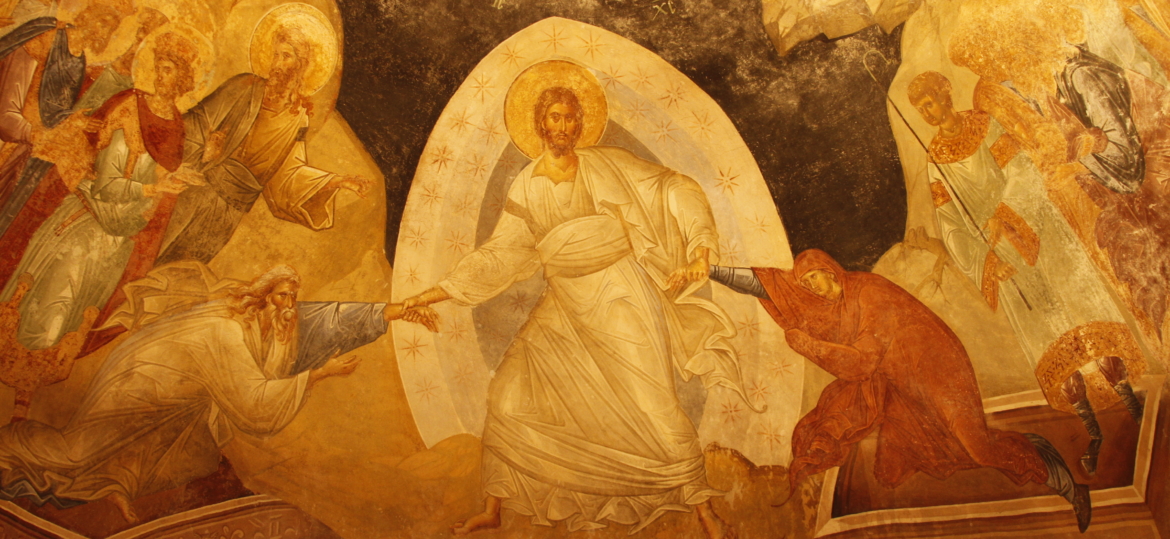

Friday, April 6, 2012
While Easter may commonly be celebrated with brunches, egg hunts, and candy trappings, properly understood, it should be the most profound and potentially divisive of holidays. Its claims are both extravagant and exclusivist; its assertions strange and supernatural: that God, who came to earth as mortal man, was himself killed to atone for the wrongdoing of others, triumphed over death, and made possible a new way of life for those who want to know Him and follow his example.
It is, in the words of G.K. Chesterton, “the strangest story ever told.” The events we commemorate this week – the death of Christ on Good Friday, and his resurrection on Easter – are so vast to comprehend, so freighted with world-altering import, that it is not altogether surprising that some would seek to manage their interpretation, to trim the tale a bit there, render it a little more plausible, and refashion a myth more suitable for the times.
Later this month, we will host an Evening Conversation with New York Times columnist Ross Douthat, along with syndicated columnist Mike Gerson and NPR religion correspondent Barbara Bradley Hagerty, on Douthat’s extraordinary new book Bad Religion: How We Became a Nation of Heretics. In this work, Douthat argues that “America’s problem isn’t too much religion, or too little of it. It’s bad religion: the slow-motion collapse of traditional Christianity and the rise of a variety of destructive pseudo-Christianities in its place… A growing number are inventing their own versions of what Christianity means, abandoning the nuances of traditional theology in favor of religions that stroke their egos and indulge or even celebrate their worse impulses.”
Others have done so with the best of intentions. Douthat continued: “Heretics are often stereotyped as wild mystics, but they’re just as likely to be problem solvers and logic choppers, well-intentioned seekers after a more reasonable version of Christian faith than orthodoxy supplies. “ Where orthodoxy admits of paradoxes and mysteries, the great heresies have attempted to fashion a more palatable, accessible Jesus – either a more ethereal mystic, or a non-divine moral teacher, or political critic, or simply a model of a more actualized or advanced being – depending on the times and audience.
But the fullness of life, death and resurrection of Jesus – the crux of the Christian faith — flouts all such attempts. If, as Douthat asserts, “The boast of Christian orthodoxy, as codified by the councils of the early Church and expounded in the Creeds, has always been its fidelity to the whole of Jesus” it is a boast that includes paradox and mystery. Showing himself to be both God and man, King over all and suffering servant, revolutionary and non-political, vulnerable and immortal, subject to birth and death and claiming “I Am,” Jesus’ life, death, resurrection, and claims confound the rationalists, materialists, pantheists, and deists alike.
At its core, the Christian belief in Christ’s resurrection defies all natural explanations. It is not, strictly speaking, a reasonable claim, but it does not oppose reason so much as transcend it. Humans did not rise from the dead with any greater frequency in Jesus’ time than in our own; the miracle of resurrection was as astounding then as now. And while his resurrection was both prophesied centuries in advance, and contemporaneously attested to by many eyewitnesses, there is no natural accounting for the fact. It remains, millennia later, a mystery – one that has outlasted heresies and corruptions, opposition and apathy. And so this Sunday, we will again celebrate the great mystery, the omnipotent and omnipresent One who became the point on which our hope hangs and history pivots:
Christ has died.
Christ is risen.
Christ will come again.
Warmly,
Cherie Harder
President

